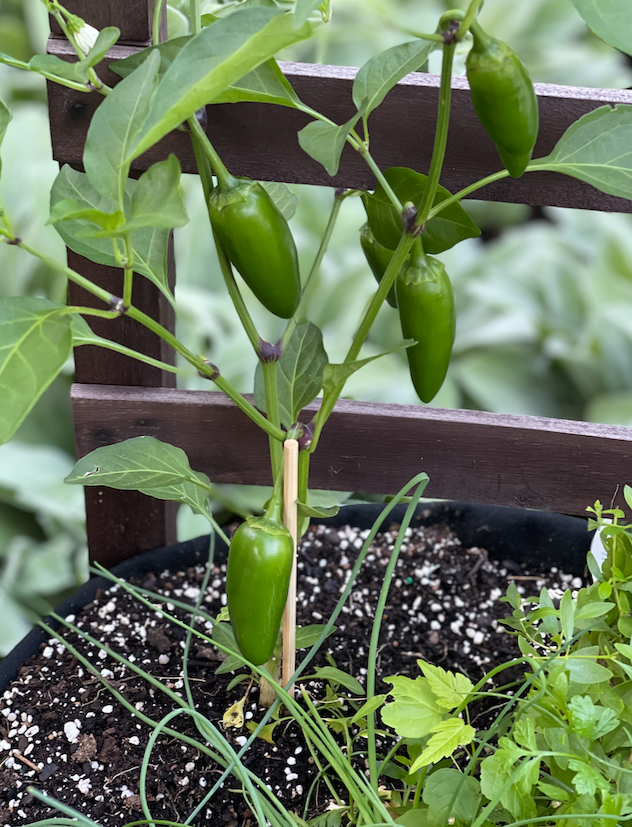Choosing the Best Fertilizers for Peppers: Professional Recommendations
Choosing the Best Fertilizers for Peppers: Professional Recommendations
Blog Article
Organic Vs. Synthetic Fertilizers: Which Is Best for Supporting Healthy Pepper Plants?
In the realm of nurturing healthy and balanced pepper plants, the option in between synthetic and natural fertilizers stands as a pivotal decision with significant ramifications. While both options goal to provide crucial nutrients to sustain plant development, the nuances of their influence on the dirt, plant wellness, and the setting stimulate a dispute that mirrors throughout the horticulture community. Recognizing the distinct advantages and prospective pitfalls of each plant food type is important for pepper cultivators looking for to optimize their yields while preserving a lasting and eco-conscious strategy.
Benefits of Organic Fertilizers
Organic fertilizers supply a lasting and environmentally-friendly approach to nourishing pepper plants, giving vital nutrients without using artificial chemicals. These all-natural plant foods are acquired from natural resources such as garden compost, manure, bone dish, and seaweed, advertising dirt health and biodiversity. Unlike artificial plant foods, organic choices launch nutrients gradually, making certain a well balanced and stable supply for pepper plants to flourish.
One substantial advantage of natural plant foods is their capacity to improve soil structure and water retention. By boosting dirt health and wellness, natural fertilizers promote valuable microbial task, which helps in nutrient uptake by pepper plants. Additionally, organic plant foods reduce the threat of chemical run-off, shielding water sources from pollution and guarding the atmosphere.
Additionally, organic plant foods add to long-lasting dirt fertility by advertising the development of helpful soil microorganisms. These organisms assist damage down organic issue, launching nutrients in a form that is conveniently accessible to pepper plants. best fertilizers for peppers. By promoting a healthy soil community, organic plant foods support sustainable pepper farming techniques that profit both plants and the setting
Downsides of Artificial Plant Foods
Artificial fertilizers, as opposed to their organic counterparts, position numerous disadvantages when made use of to nurture pepper plants, influencing both plant health and wellness and environmental sustainability. One significant downside of synthetic plant foods is their propensity to seep nutrients from the dirt promptly. This quick leaching can bring about nutrient inequalities in the soil, causing plants to experience from poisonings or deficiencies. In addition, synthetic plant foods can damage advantageous dirt organisms, such as earthworms and advantageous bacteria, interfering with the soil ecosystem's balance.
In addition, the overuse of artificial fertilizers can contribute to water contamination. Excess plant foods not absorbed by plants can clean away right into water bodies, bring about eutrophication, where algae blooms diminish oxygen levels in the water, harming water life. Artificial fertilizers are commonly obtained from non-renewable resources, such as fossil fuels, contributing to carbon exhausts and ecological degradation throughout their company website manufacturing.
Nutrient Absorption Comparison
When contrasting artificial and organic plant foods in terms of nutrient absorption, natural fertilizers have the advantage of offering an extra well balanced and slow-release source of nutrients. Organic fertilizers have a range of macro and trace elements that are not only beneficial for the plants however also promote healthy and balanced soil microbial task, which helps in nutrient uptake.
In addition, organic plant foods improve soil framework and water retention capability, permitting pepper plants to access nutrients extra efficiently. This better soil quality promotes root development, allowing better nutrient absorption. Artificial fertilizers, although initially boosting plant growth due to their high nutrient focus, might hinder long-lasting nutrient absorption by derogatory soil health and wellness gradually.
Ecological Influence Considerations

On the various other hand, artificial plant foods, although frequently even more concentrated and promptly offered to plants, can have harmful effects on the atmosphere otherwise used properly (best fertilizers for peppers). Their manufacturing requires high energy inputs, resulting in greenhouse gas discharges and contributing to climate modification. Additionally, the drainage of excess artificial plant foods can pollute check over here water resources, resulting in eutrophication and damaging aquatic ecological communities.
Best Plant Food Practices for Peppers
When feeding pepper plants, maximizing nutrient uptake and lessening environmental effect are key considerations. To attain this, it is important to comply with best plant food methods customized to the specific demands of pepper plants. One important practice is to do a soil examination before applying any kind of plant foods. This test can figure out the pH level of the dirt and determine any kind of nutrient deficiencies, leading you in selecting the most ideal plant food formula.
Another essential practice is to fertilize pepper plants at the right time. Normally, peppers benefit from obtaining plant food at growing and afterwards once again when they begin to flower. Over-fertilizing can cause vitamins and mineral imbalances and harm the plants, so it is crucial to comply with advised application prices.
Furthermore, selecting a well balanced plant food with an NPK ratio that fits pepper plants' needs is essential. Organic fertilizers, such as garden compost or manure, can be excellent choices as they launch nutrients slowly and boost dirt framework over time. Synthetic fertilizers can offer a fast nutrient increase when needed. Inevitably, incorporating read review natural and artificial fertilizers carefully can assist support healthy pepper plants while lessening environmental effect.
Final Thought

Organic fertilizers supply an environmentally-friendly and lasting technique to nourishing pepper plants, offering vital nutrients without the usage of synthetic chemicals. Unlike artificial fertilizers, natural choices release nutrients gradually, ensuring a balanced and steady supply for pepper plants to prosper.
Synthetic plant foods, in contrast to their organic counterparts, posture various negative aspects when utilized to nourish pepper plants, impacting both plant health and environmental sustainability. When contrasting synthetic and organic fertilizers in terms of nutrient absorption, natural fertilizers have the benefit of providing a more well balanced and slow-release resource of nutrients.Additionally, organic fertilizers improve dirt framework and water retention ability, enabling pepper plants to accessibility nutrients extra successfully.
Report this page